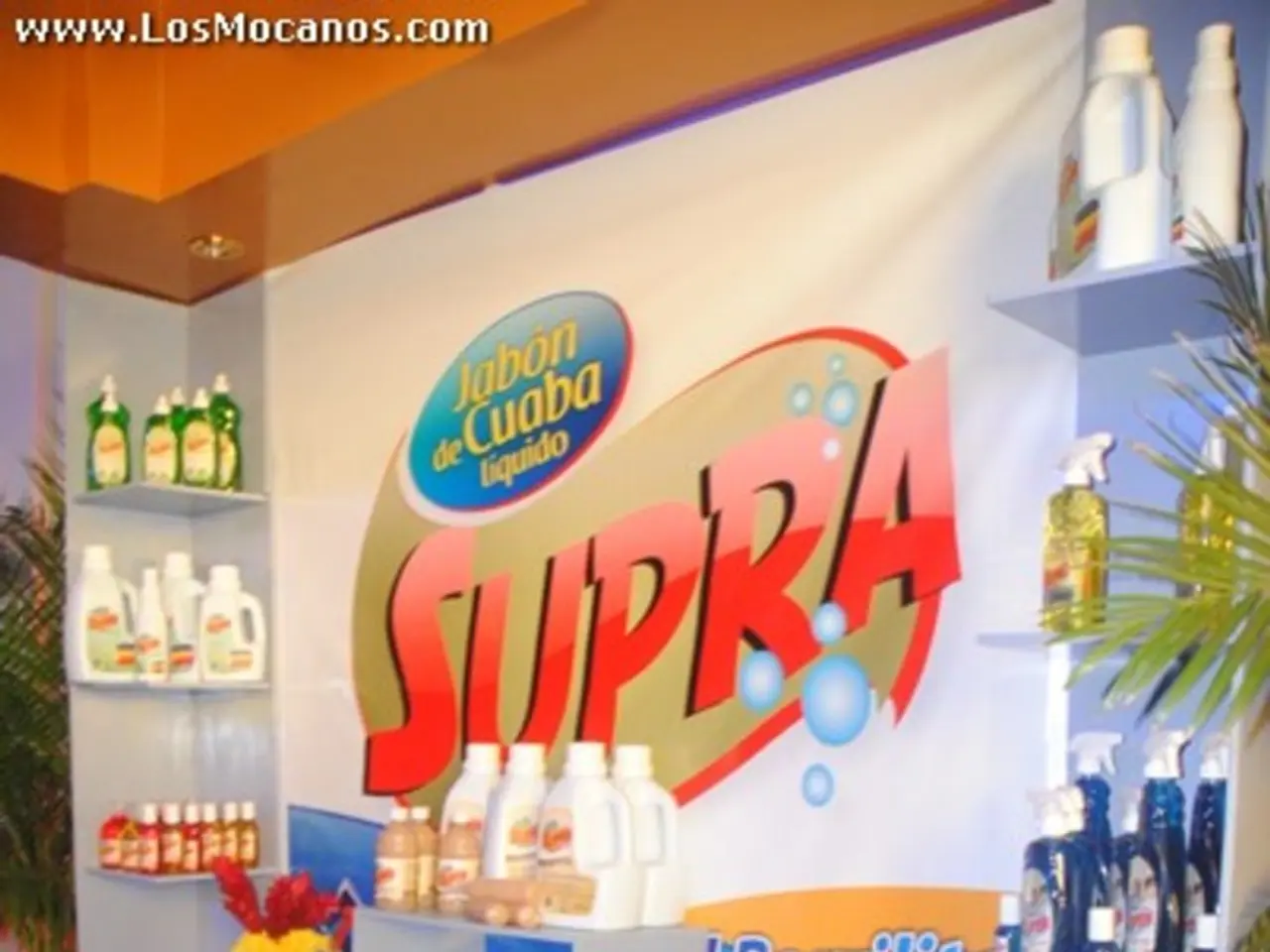Catastrophic Downfall of the Palm Oil Industry
In a bid to combat the environmental impacts of traditional palm oil production, lab-engineered alternatives are making significant strides. These alternatives, primarily developed through precision fermentation and microbial synthesis, hold the potential to replace palm oil in food, cosmetics, and personal care products.
One such startup, NoPalm, based in the Netherlands, is using precision fermentation to produce tailor-made microbial oils and fats. These replacements, found in non-dairy ice creams and other products, replicate the functional properties of palm oil without causing tropical forest destruction. This offers environmental benefits such as reduced habitat loss and a lower carbon footprint compared to conventional palm oil[1].
Similarly, the French startup Verley is scaling up the production of precision-fermented dairy proteins and fats, which might lead to customizable, allergen-free, and healthier fats in vegan products[1].
In the cosmetics industry, Estonian startup Äio is advancing yeast-derived fats produced by fermenting wood- and agricultural byproducts. With a €1M grant, Äio is developing fermentation-derived sustainable lipids specifically for cosmetic and personal care ingredients[3]. This technology offers a scalable palm oil substitute with potentially less environmental damage, aligning with EU regulations aiming to ban deforestation-linked palm oil imports.
While chemical engineering improvements, such as intensified glycerolysis of palm oil, aim to improve process efficiency and reduce waste in conventional palm oil derivative syntheses, these do not replace palm oil itself but improve sustainability within existing production methods[2].
The world consumed nearly 70 million metric tons of palm oil in 2018, more than any other vegetable oil[4]. Most of this consumption is in food, making it the ultimate target for synthetic alternative oils to make a big environmental impact. One company, C16 Biosciences, founded by Shara Ticku and Harry McNamara, aims to bio-manufacture a sustainable oil as an alternative to palm oil[4].
However, challenges remain in scaling up these lab-engineered alternatives. Ivana Gazibara, associate director of Forum for the Future, suggests that cosmetics make a good starting point for alternative oils due to lower regulatory barriers[2]. As these alternatives become more commercially viable, they could potentially disrupt the palm oil market and contribute to a more sustainable future.
References:
[1] NoPalm: https://www.nopalm.com/ [2] Gazibara, Ivana (2020). "Lab-Grown Palm Oil: The Future of Sustainable Fats?". GreenBiz. [3] Äio: https://www.aiolipids.com/ [4] C16 Biosciences: https://c16biosciences.com/
*Note: This article is intended to provide a general overview of the topic and should not be considered an exhaustive review of all research or companies in the field.
Palm oil plantations cover an area around half the size of France and are a major driver of deforestation in Southeast Asia, threatening nearly 200 vulnerable or endangered species[4]. The greenhouse gas emissions from palm oil-related deforestation and fires in Indonesia have at times exceeded those of the entire US economy[4].
Many companies that committed to sustainable palm oil sourcing still do business with "dirty" producers[4]. In response, the European Union has proposed regulations aimed at banning deforestation-linked palm oil imports[3].
Kourosh Salehi-Ashtiani, a biologist at NYU's Abu Dhabi campus, is working on a process that could be up to 10 times the price of palm oil[2]. Ivana Gazibara, associate director of Forum for the Future, suggests that alternatives like this might be too expensive for the food industry, which is risk-averse and has higher regulatory barriers compared to the cosmetics industry[2].
According to Gazibara, most of the alternative oils she's researched are still three to four times the cost of palm oil due to the expense of maintaining industrial-scale lab equipment and the low volume of oil that microorganisms can produce compared to trees[2].
A report from the International Union for Conservation of Nature concluded that alternatives to palm oil would invariably result in increased deforestation and threats to endangered species[4]. This underscores the importance of developing sustainable alternatives that can replace palm oil while minimizing environmental impacts.
Shara Ticku's journey to biotech was inspired by a toxic smog event in Southeast Asia in June 2013, caused by wildfires in Indonesia for palm oil tree plantations[4]. The commercial product from C16 Biosciences is expected to be available by summer 2020, first in cosmetics and later in food[4].
In conclusion, the current progress in lab-engineered palm oil alternatives focuses on precision fermentation and yeast-based fat production, showing promise for significant ecological benefits by reducing palm oil-driven deforestation, biodiversity loss, and greenhouse gases. Scaling up remains a challenge, but government grants and increasing commercial interest indicate growing momentum and potential for market adoption in both the food and cosmetics sectors[1][3][4].
- Articles and startups, like NoPalm and C16 Biosciences, are spearheading the use of precision fermentation to produce lab-engineered alternatives to palm oil for food, cosmetics, and personal care products.
- These non-dairy products, such as ice creams, offer environmental benefits, including reduced habitat loss and a lower carbon footprint compared to conventional palm oil.
- In the cosmetics industry, Estonian startup Äio is leveraging precision fermentation to develop sustainable lipids as alternatives to palm oil, aligning with EU regulations aiming to ban deforestation-linked palm oil imports.
- While chemical engineering improvements aim to reduce waste in conventional palm oil derivative syntheses, they do not replace palm oil itself, causing continued environmental concerns related to deforestation and greenhouse gas emissions.
- The potential of lab-engineered alternatives to disrupt the palm oil market and contribute to a more sustainable future largely depends on overcoming challenges in scaling up production and achieving competitiveness with traditional palm oil in terms of cost and regulatory barriers.
- The development of sustainable alternatives, such as those based on precision fermentation and yeast-derived fats, is crucial to minimize environmental impacts associated with palm oil-driven deforestation, biodiversity loss, and greenhouse gas emissions.




